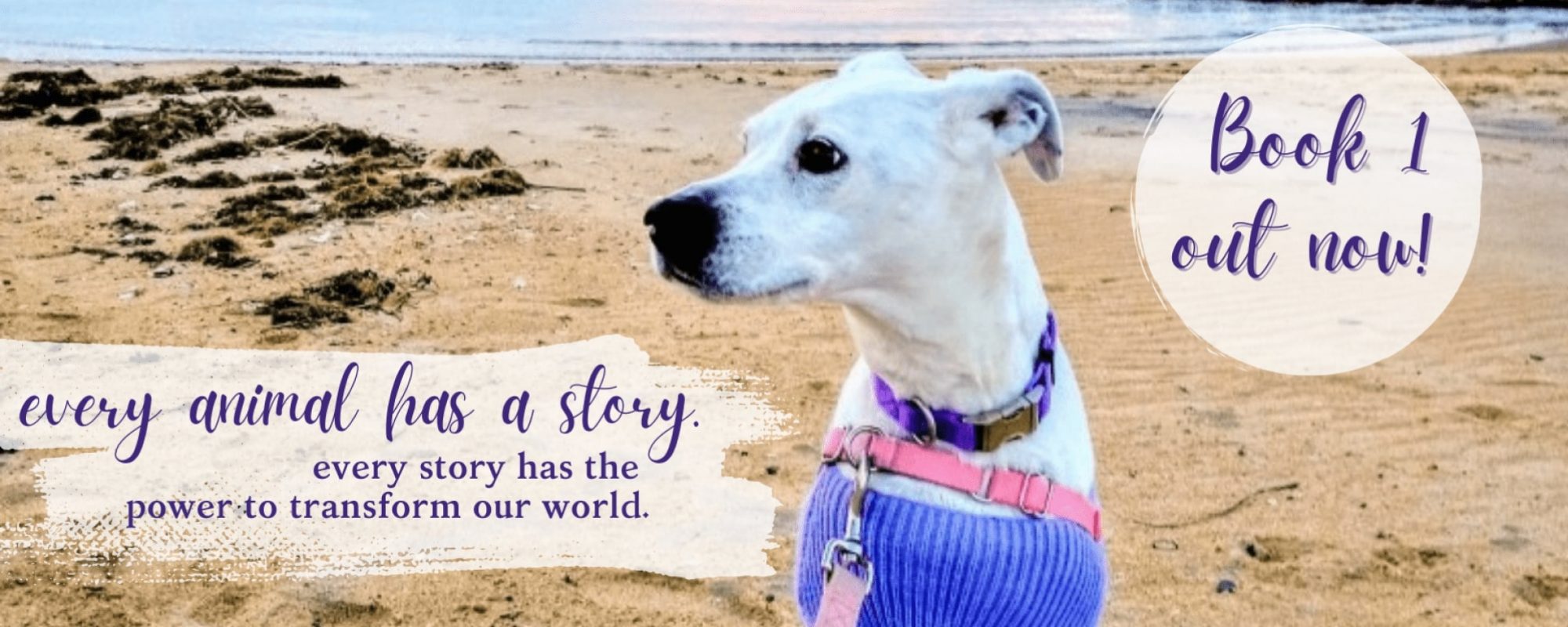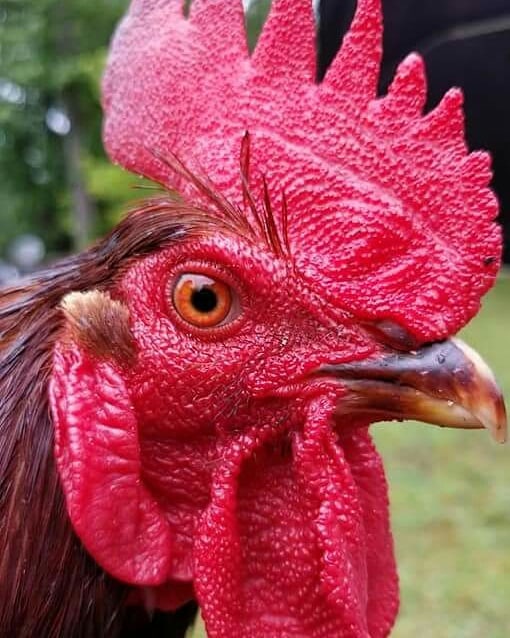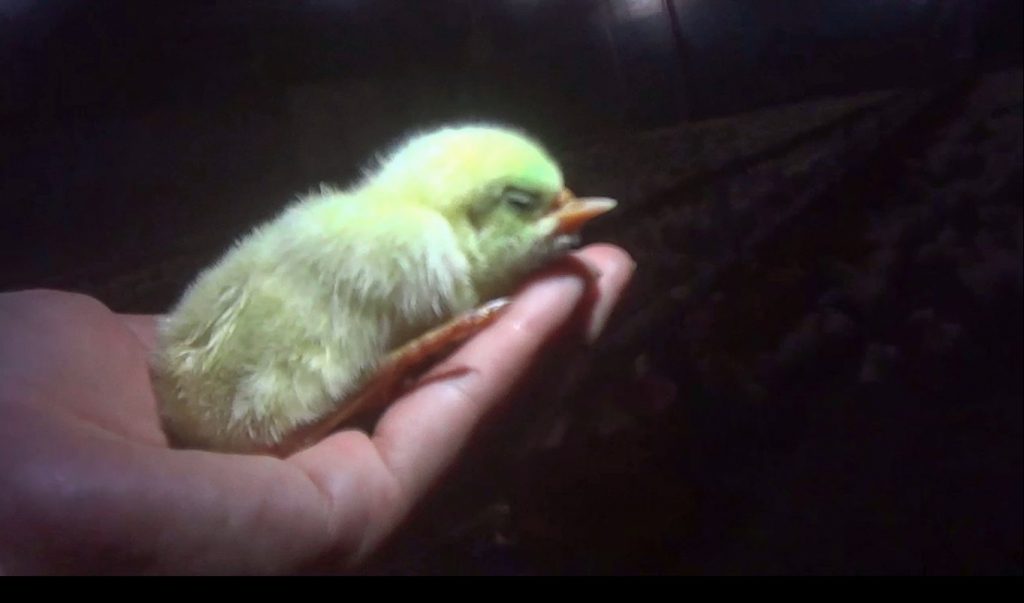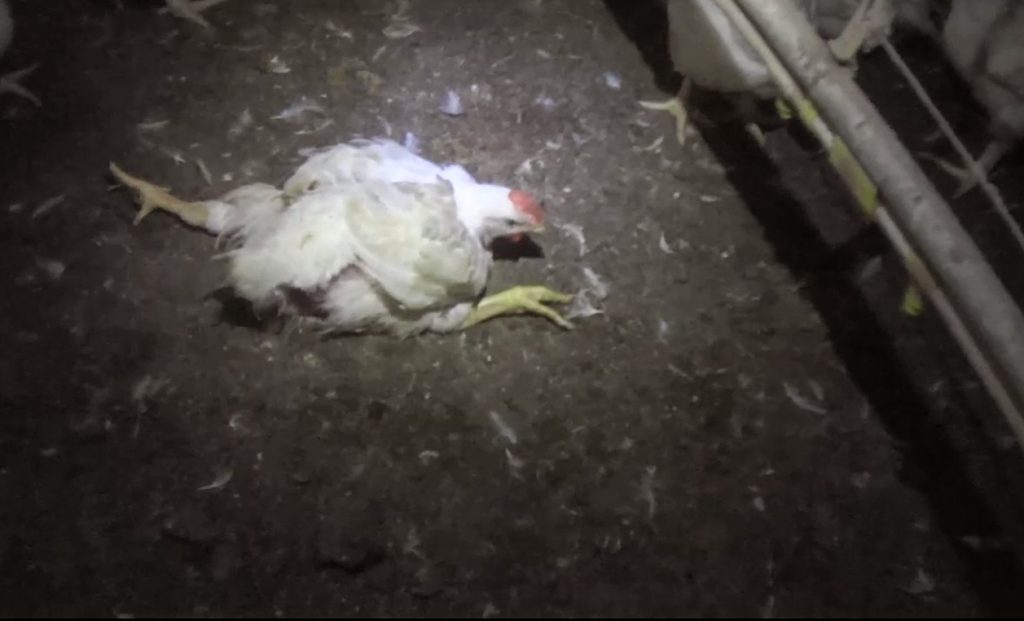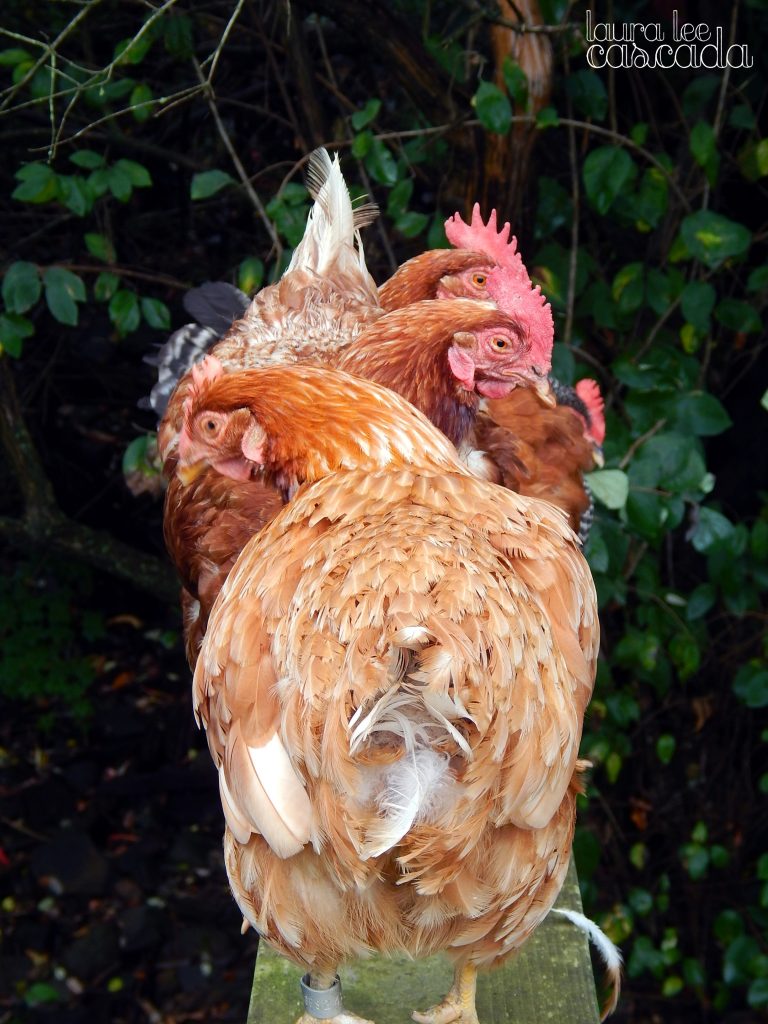What do you get for an animal lover who already has everything she needs? A rooster sponsorship, clearly.
That’s what went through my mind during this past holiday season when I stopped by a pop-up for Grateful Meadows, a Virginia-based animal sanctuary and cozy B&B run by my friends Tori and Jonathan, and saw this face peering up at me from one of their holiday cards on the table.
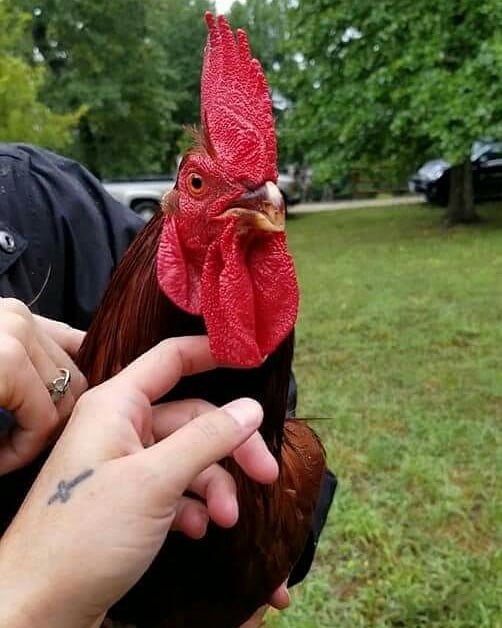
This stunning redhead, named Lucia (“Loo-sha”), comes from a not-so-extraordinary background. Like thousands of birds who are unlucky enough to be born as males in the backyard chicken movement, he wasn’t considered particularly useful. So, like many others, Lucia was dumped and abandoned.
In the larger, industrial egg industry, male birds don’t have it any easier. Because only females are needed to lay eggs, newborn male chicks are killed just because of their sex. In the US, it’s estimated that about 260 million male chicks are suffocated, gassed, or macerated (picture: a giant blender for baby birds) to death each year.
Worldwide, this number surpasses six billion chicks every single year.
And then there’s cockfighting, a blood sport that’s illegal yet still prevalent across the US. For this gruesome game, breeding, training, and even steroids are used to amplify roosters’ natural fighting instincts. Before a fight, breeders will cut off a rooster’s combs to prevent tearing during the fight and pluck out most of his feathers. The birds are also outfitted with sharp spikes on their feet, exacerbating injuries.
These bloody matches often end in death.
But, fortunately, Lucia’s path took a different turn. Enter Grateful Meadows into Lucia’s life a little over a year ago. And just as much as they’ve changed his world and gifted him with a permanent loving home, he’s changed theirs.
Says Tori, “We’ve learned that chickens can purr like kittens when being pet. We’ve learned chickens make a distinct excited sound when they find something tasty.”
Lucia’s favorite sound? The cock-a-doodle-doo, of course. But his family has picked up on dozens of other noises he makes to convey his feelings and desires.
Perhaps as expected, Lucia acts as the sanctuary’s security guard, on alert for any visitors. He loves to put on a tough show. “But underneath those beautiful feathers,” admits Tori, “he’s all about snuggles.”
Every day, Lucia proves to everyone who meets him that roosters, often seen as aggressive and obnoxious, are actually loving, generous spirits.
Roosters are fiercely protective of their families and even do a dance known as “tidbitting” to alert other chickens to food. (Maybe we’d all do well to look to Lucia for a lesson on sharing.)
Speaking of food, Lucia’s faves? “Watermelon from the garden, grapes picked off the vine, and on occasion [he’ll] indulge in a very berry smoothie,” according to the Grateful Meadows website.
Ultimately, the biggest lesson we can learn from Lucia is perhaps one of the most important and challenging of our lives: Question stereotypes, and dig deep beneath the surface.
Hopefully, with feathered cuddlebugs like Lucia taking the internet by storm, roosters’ bad rep will soon fly the coop.
Now at Grateful Meadows, Lucia shares the roost with a motley crew of other rescued animals: a hungry potbellied pig named Winnie, who eats everything; comedic donkey brothers Archer and Marley; a loyal dog named Baelyn; and others. Birds of a feather don’t always flock together, it seems, as this hodgepodge of species has come together into one big, happy family.
It is there, tucked between sprawling country fields, that these lucky rescues have found their nesting place. It is where, put simply, “the warm welcoming embrace of a retreat center” meets “the safety, peace, and compassion of a sanctuary for the animal residents.”
Lucia stole my heart from the moment I saw his photo on the table that winter day, and now he’s stolen yet another in the friend I gifted with his sponsorship.
To help spread the wingspan of Grateful Meadows’ work for animals, you can join me in sponsoring Lucia, Archer, Marley, or any of the other residents: Just visit this website.
All photos courtesy of Grateful Meadows.

